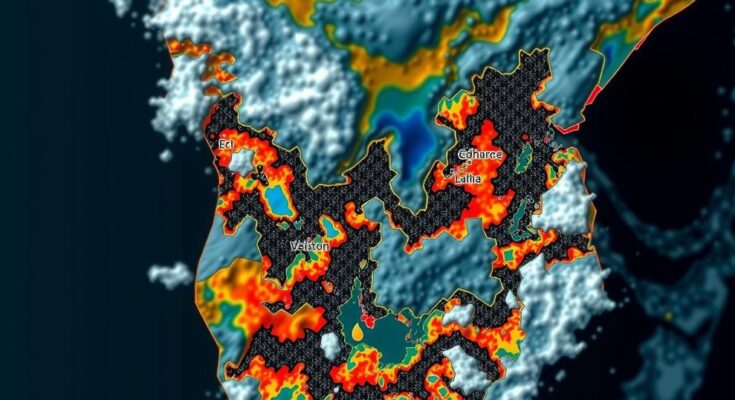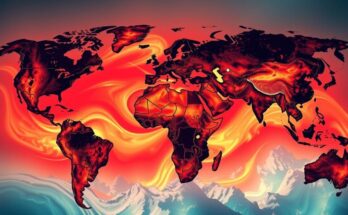A recent study by international scientists indicates that human-induced climate change has intensified seasonal rains, leading to severe flooding in Cameroon, Chad, Niger, Nigeria, and Sudan. Approximately 1,500 fatalities and over one million displacements have resulted from this year’s floods. The report suggests that such extreme rainfall may become more frequent if global warming continues, urging investments in disaster preparedness. Critically, Joyce Kimutai points out Africa’s limited contribution to global carbon emissions yet highlights the continent’s vulnerability to climate change effects.
Recent studies conducted by an international team of scientists have determined that severe rains contributing to catastrophic flooding in several African nations, including Cameroon, Chad, Niger, Nigeria, and Sudan, have been exacerbated by anthropogenic climate change. According to World Weather Attribution (WWA), global warming increased the intensity of seasonal rainfall in the Niger and Lake Chad basins by approximately 5 to 20% this year. This report underscores the alarming trend of such extreme weather events potentially becoming commonplace if the current warming trajectory continues. Izidine Pinto, a researcher at the Royal Netherlands Meteorological Institute, remarked, “Spells of heavy summer rainfall have become the new normal in Sudan, Nigeria, Niger, Cameroon and Chad.” The severity of this year’s floods has resulted in approximately 1,500 fatalities and the displacement of over one million individuals, according to the United Nations Office for the Coordination of Humanitarian Affairs (OCHA). Additionally, these unprecedented rainfall levels have led to the overburdening of dams in regions such as Nigeria and Sudan. The WWA warns that if global temperatures reach a 2 degrees Celsius increase by the 2050s, extreme downpours similar to what has been witnessed this year could occur on an annual basis. In light of these findings, the organization has advocated for enhanced investments in early warning systems and infrastructural improvements to dams. Joyce Kimutai, a researcher at the Centre for Environmental Policy at Imperial College London, emphasized Africa’s predicament, stating, “Africa has contributed a tiny amount of carbon emissions globally, but is being hit the hardest by extreme weather.” She urged that the upcoming COP29 climate talks in November should ensure that affluent nations provide significant financial support to mitigate these challenges.
The recent flooding crisis in West and Central Africa has been attributed, in part, to climate change—a consequence of increased greenhouse gas emissions primarily produced by industrialized nations. The connection between human activities and extreme weather phenomena has been a pivotal area of research, with studies increasingly pointing to the direct links between climate change and the intensification of natural disasters such as floods. The WWA is a collective of scientific experts analyzing the impact of global warming on weather conditions, and their findings are critical in informing policy discussions surrounding climate change adaptation and mitigation strategies.
The alarming findings regarding the relationship between climate change and the intensified rainfall resulting in severe flooding in Africa highlight the urgent need for global action. With anticipated annual occurrences of extreme weather events and substantial human costs involved, it is imperative for international bodies to prioritize financial and infrastructural support for affected regions. The forthcoming COP29 climate talks present a critical opportunity for wealthy nations to fulfill their responsibilities in combating the adverse effects of climate change on vulnerable populations.
Original Source: www.usnews.com




